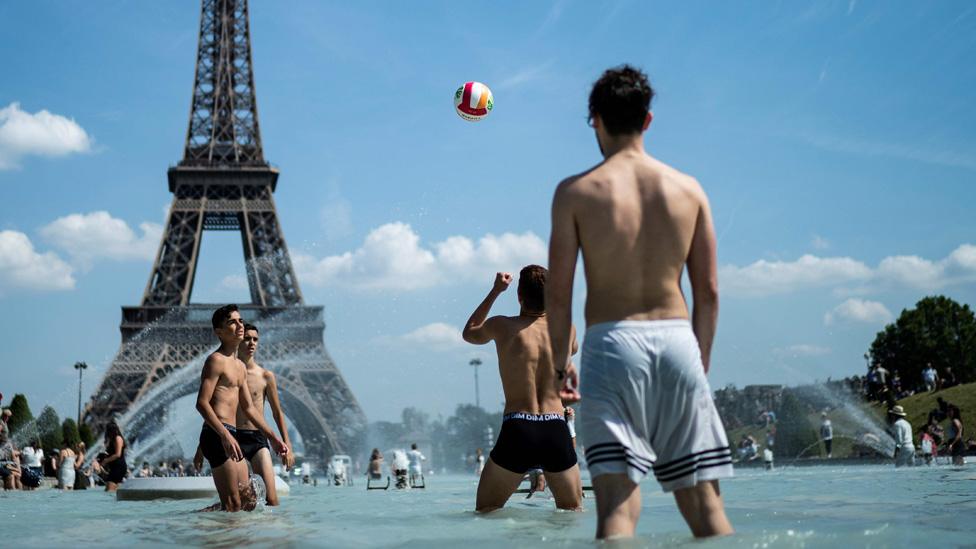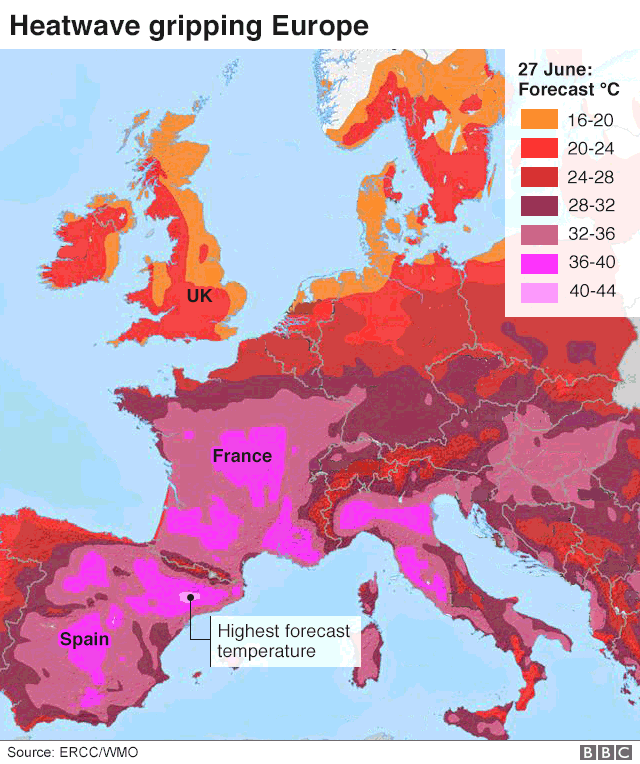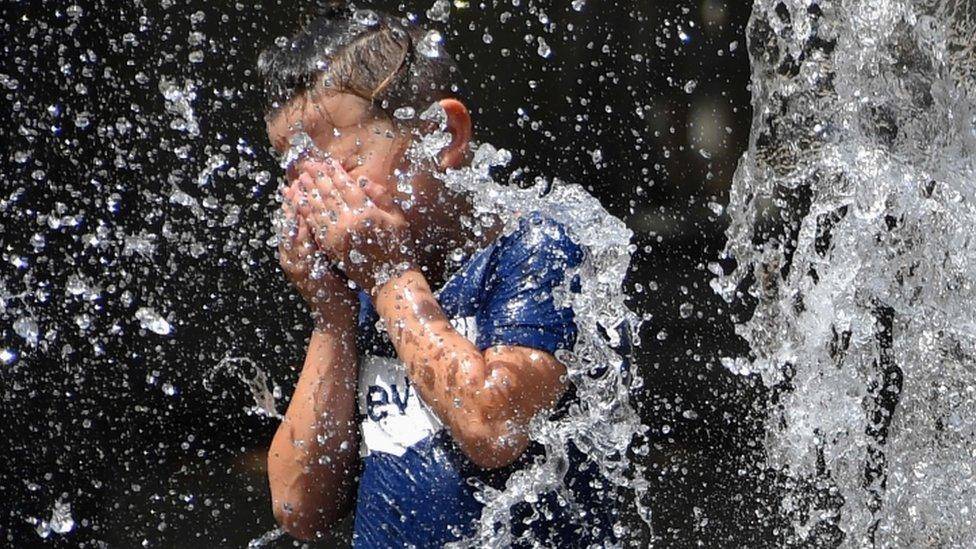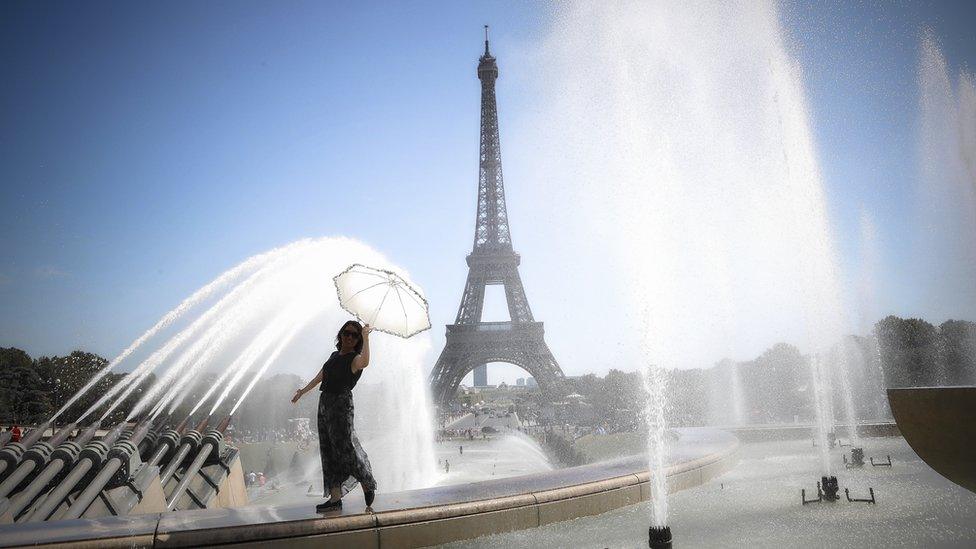France heatwave: Paris region closes schools
- Published

Some people cooled off in a fountain near the Eiffel Tower
France is starting to close dozens of schools because of a heatwave, with temperatures expected to climb above 40C (104F) in some regions on Thursday.
About 50 schools in the Essonne region, just south of Paris, are being shut, as they lack sufficient air conditioning.
On Thursday, French BFMTV says, schools will also be shut in the Val-de-Marne and Seine-et-Marne regions near Paris.
In parts of northeastern Spain the heat is expected to reach 45C on Friday. Germany and Italy are still below 40C.
The exceptionally hot air has blown in from the Sahara.
What measures have been put in place?
Switzerland is also sizzling, but there the authorities insist that schools will remain open, because working parents cannot be expected to look after their children during the day.
French officials decided that in Paris and Lyon only the least polluting vehicles would be allowed on the roads from Wednesday. Paris is especially prone to smog in hot weather.
Parisian drivers are also being offered free parking places to encourage them to use public transport instead.
Animals in a Rome zoo got ice lollies to help them deal with the heat
France was traumatised by a heatwave in 2003 which was blamed for 15,000 extra deaths.
Nearly all of France is now on orange alert - the second-highest warning level after red - with local authorities issuing advice on how to keep cool.
A Spanish weather forecaster tweeted a map of Spain turning dark red, external, with the message: "Hell is coming."
In the state of Saxony-Anhalt, eastern Germany, speed limits have been imposed on motorways because of the risk of severe heat damaging road surfaces.


Meanwhile, police in the state of Brandenburg tweeted a photo of a man who went to extraordinary lengths to keep cool - he was stopped riding his motorbike naked.
Allow X content?
This article contains content provided by X. We ask for your permission before anything is loaded, as they may be using cookies and other technologies. You may want to read X’s cookie policy, external and privacy policy, external before accepting. To view this content choose ‘accept and continue’.

Is climate change to blame?
Linking a single event to global warming is complicated.
While extreme weather events like heatwaves occur naturally, experts say these will happen more often because of climate change.
Temperature records going back to the late 19th Century show that the average temperature of the Earth's surface has increased by about one degree since industrialisation.
A climatology institute in Potsdam, Germany, says Europe's five hottest summers since 1500 have all been in the 21st Century.
Scientists are concerned that rapid human-induced warming has serious implications for the stability of the planet's climate.

What measures are you taking to cope with the heatwave? Share your stories. Email haveyoursay@bbc.co.uk, external
Please include a contact number if you are willing to speak to a BBC journalist. You can also contact us in the following ways:
WhatsApp: +44 7555 173285
Tweet: @BBC_HaveYourSay, external
Send pictures/video to yourpics@bbc.co.uk, external
Text an SMS or MMS to 61124 or +44 7624 800 100
Please read our terms of use and privacy policy
- Published27 June 2019

- Published24 June 2019
